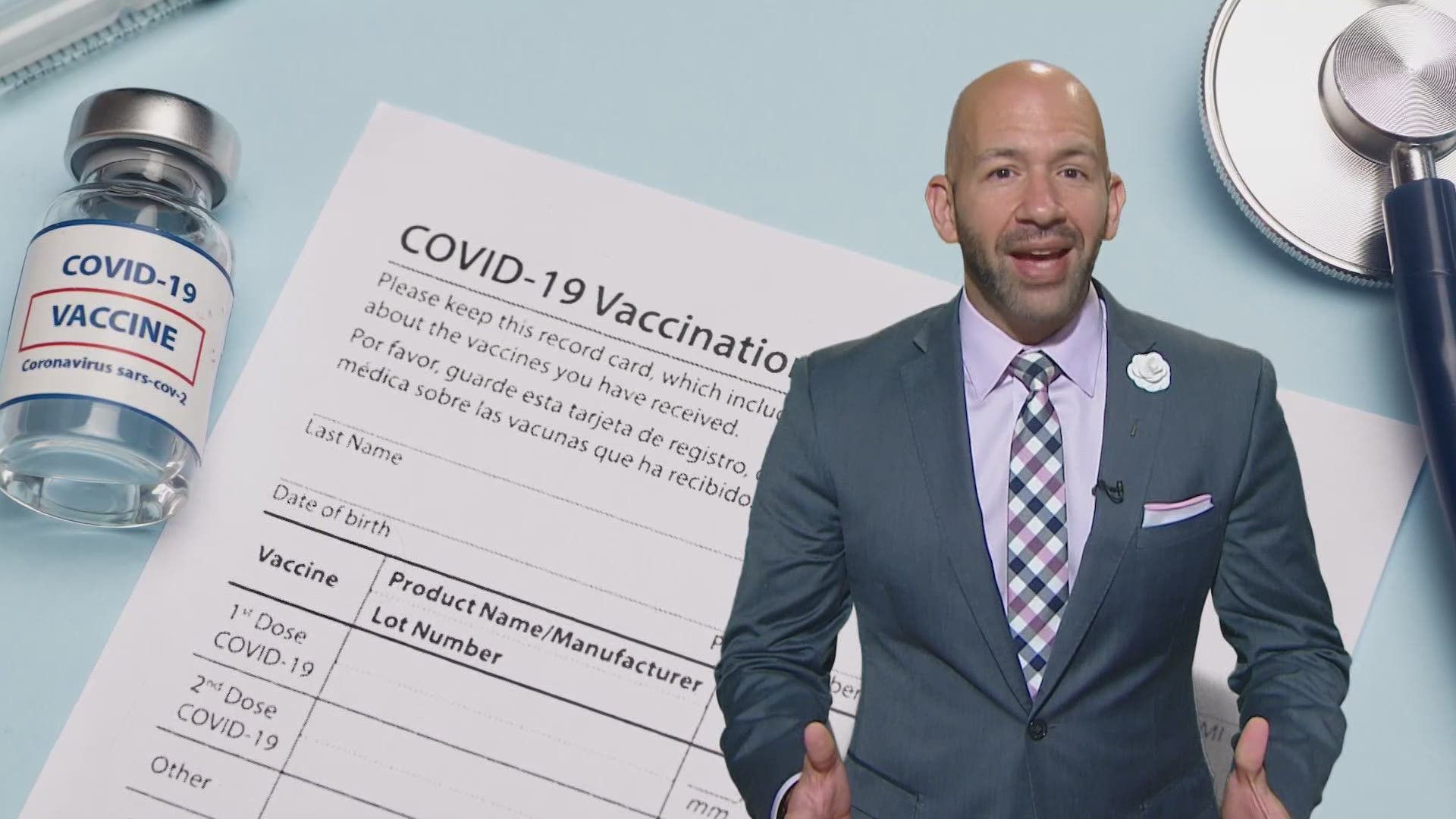AUSTIN, Texas — This story originally appeared in The Texas Tribune.
On Friday, White House health adviser Dr. Anthony Fauci had a vital message for Americans who have gotten their first dose of the Moderna or Pfizer coronavirus vaccine: Don't skip your second shot.
About 8% of people nationwide who have received one dose of the Pfizer or Moderna vaccine have not returned for their second dose, Fauci said Friday. That's normal compared to what health experts have seen with other multidose vaccines. But skipping a second dose will not be as effective in preventing the spread and providing the complete protection needed against the virus that has killed more than 576,000 people in the U.S. and more than 49,000 people in Texas.
"Bottom line of my message: Get vaccinated. And if you're having a two-dose regimen, make sure you get that second dose, too," Fauci said.
A lower percentage of people vaccinated in Texas are skipping their second dose relative to the rest of the country. As of April 25, about 5% — or 570,399 — of Texans who had received the first dose were 43 days or more past due for their second dose, according to data from the Texas Department of State Health Services.
Health experts say fears of side effects, an inability to take time off of work or incorrectly thinking that a single dose is enough all might be contributing factors to why some are skipping their second dose.
A recent report by the Centers for Disease Control and Prevention found the Pfizer and Moderna vaccines are 64% effective at preventing hospitalizations in the elderly after the first dose. But they are 94% effective after two doses.
"Everything is showing us that you need two doses to get good protection against the virus," said Dr. John Carlo, CEO of Prism Health North Texas and a member of the state medical association's COVID-19 task force.
Carlo said another issue some Texans had earlier this year was finding a second dose, as the number of people eligible for the COVID-19 vaccine surpassed the number of vaccines available. However, he said, that's no longer an issue.
Texas is seeing its first dip in vaccine demand and a surplus in supplies since the state’s vaccinations began last winter, leading local and state officials to brainstorm ways to get people to their regional vaccination hub. Strategies have included trucks driving through small rural towns with LED signs, a $1.5 million TV and digital ad campaign and even possibly offering bobblehead or gift card incentives.
Since skipping second doses isn't unique to any part of Texas, both state and local officials are trying to spread the word of the second dose's importance, said DSHS spokesperson Douglas Loveday.
"DSHS has launched new TV, radio and digital ads about these important issues, but we're not the only ones carrying the message," Loveday said in an email. "The governor posted a new video ... on his Twitter account about the importance of getting a second vaccine dose, and our region and local partners continue to message about getting fully vaccinated."
Loveday said the second vaccine dose is also essential in preventing the creation and spread of new COVID-19 variants — a mutation of the original virus.
While new variants have not yet been identified as deadlier than the original coronavirus strain, according to the CDC, they can be more contagious. This can lead to more cases, more hospitalizations and, potentially, more deaths.
Dr. Catherine Troisi, an infectious disease epidemiologist with UTHealth School of Public Health in Houston, said the first dose primes your immune system. The second dose cements the protection.
"The first dose of the vaccine may protect you from the original virus, but there are variants out there," Troisi said. "Because your immune response isn't as strong without your second dose, variants can replicate and spread. The second dose lowers the odds of that happening."
Health experts say Texans who have missed an appointment for a second dose shouldn't worry about having to start the process over again. While getting the second dose should happen within two to six weeks after the first one — and not any sooner than that — it's always better to get it late than never. If someone has missed their appointment for their second vaccine dose, they can contact their vaccine distributor to reschedule their appointment.
"There isn't going to be any shaming if you get the vaccine months later," said Dr. Diana Cervantes, assistant professor of epidemiology at the University of North Texas Health Science Center at Fort Worth. "I know people might be hesitant if they missed their second dose. But it's never too late."
Disclosure: The University of North Texas and UTHealth School of Public Health have been financial supporters of The Texas Tribune, a nonprofit, nonpartisan news organization that is funded in part by donations from members, foundations and corporate sponsors. Financial supporters play no role in the Tribune's journalism. Find a complete list of them here.
The Texas Tribune is a nonpartisan, nonprofit media organization that informs Texans — and engages with them – about public policy, politics, government and statewide issues.

